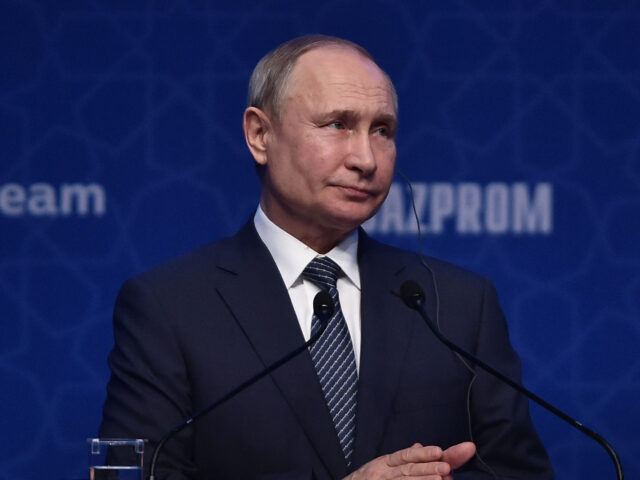Russian natural gas imports to the European Union have overtaken those from the United States for the first time in nearly two years after Brussels sanctions over the Ukraine invasion took hold.
Pipeline gas and liquid natural gas (LNG) from Russia accounted for around 15 per cent of total imports to the EU in May, analysis from the Independent Commodity Intelligence Services (ICIS) found.
Following energy sanctions from Brussels and individual member states, the United States surpassed Russia in September of 2022 and has come to supply the EU with around one-fifth of its natural gas imports, the vast majority being LNG shipped in tankers across the Atlantic. However, last month, U.S. supply only counted for 14 per cent, falling behind Russia and Norway.
“It’s striking to see the market share of Russian gas and [liquefied natural gas] inch higher in Europe after all we have been through, and all the efforts made to decouple and de-risk energy supply,” head of gas analytics at ICIS Tom Marzec-Manser told the Financial Times.
While the consultancy firm did say that last month was unique in some regards and the trend reversal is “not likely to last”, given factors such as an outage of a top American LNG facility and Russia increasing shipments to Europe via Turkey ahead of planned maintenance, May’s leapfrogging demonstrated the continued dependence on Russian gas in the EU.
The continued dependence on Russia — and indeed the United States — comes in large part due to the pursuit of so-called green forms of energy while actively spurning domestic fracking for natural gas and a refusal to invest in viable carbon-neutral forms of energy like nuclear power.
Germany, Europe’s largest economy and industrial power, has long bragged about leading the green charge as it relied heavily on Russian gas imports, not only as a means of energy but also as a key component in manufacturing.
However, despite natural gas being a critical component in much of its manufacturing base, Germany, alongside other major European powers like France and Spain, banned fracking for natural gas over its debated environmental impacts. Conversely, the United States has actually managed to lower its carbon emissions over the past two decades with the shale gas revolution which has also made the country essentially energy-independent.
Meanwhile, just six per cent of its natural gas consumption was covered by domestic supplies in 2023 in Germany. The refusal to tap into their own natural resources and an overreliance on imports left Germany vulnerable to the whims of foreign capitals, being plunged into an energy crisis, for example, as Vladimir Putin dramatically cut pipeline shipments following Western sanctions over his invasion of Ukraine and the subsequent sabotage of the partially German-owned Nord Stream pipelines from Russia.
In addition to largely depriving its citizens of a domestic source of natural gas, the German government has also saw fit to phase out the use of its aging fleet of nuclear power reactors with no plans to replace them with new facilities.
This comes despite its neighbour and most significant regional ally in France demonstrating the viability of nuclear energy in sustaining a modern society. Indeed, France produces so much nuclear power — supplying around 70 per cent of the nation’s total energy needs — it has enabled the country to export around €3 billion per year in in electricity to other EU countries.
Unlike his counterpart in Berlin, French President Emmanuel Macron — a previous opponent of nuclear energy — has made one of his few pitches to the public in the campaign for the snap legislative elections to call for the doubling down on nuclear, vowing to build at least 14 new nuclear reactors.

COMMENTS
Please let us know if you're having issues with commenting.